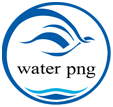Continuous change and transformation
Under the National Water Supply and Sewerage Act of 1982, a new authority, the National Water Supply and Sewerage Board (the Waterboard), was established and made responsible for the development of the water supply and sanitation sector throughout the country. The Act empowered the Waterboard to declare as districts nationally administered water supplies and sewerage facilities in the country, regulate the operations of water supply and sewerage systems run by other organizations or agencies, (e.g. provincial governments, local governments, missions, statutory authorities, private enterprises, etc.), and set water supply and sewerage tariffs. In the face of limited financial resources with which to pursue economic development, the Government has moved steadily toward reducing the amount of Government subsidy to the sector by requiring consumers to pay for the costs of providing water supply and sewerage services particularly in the larger urban areas.
